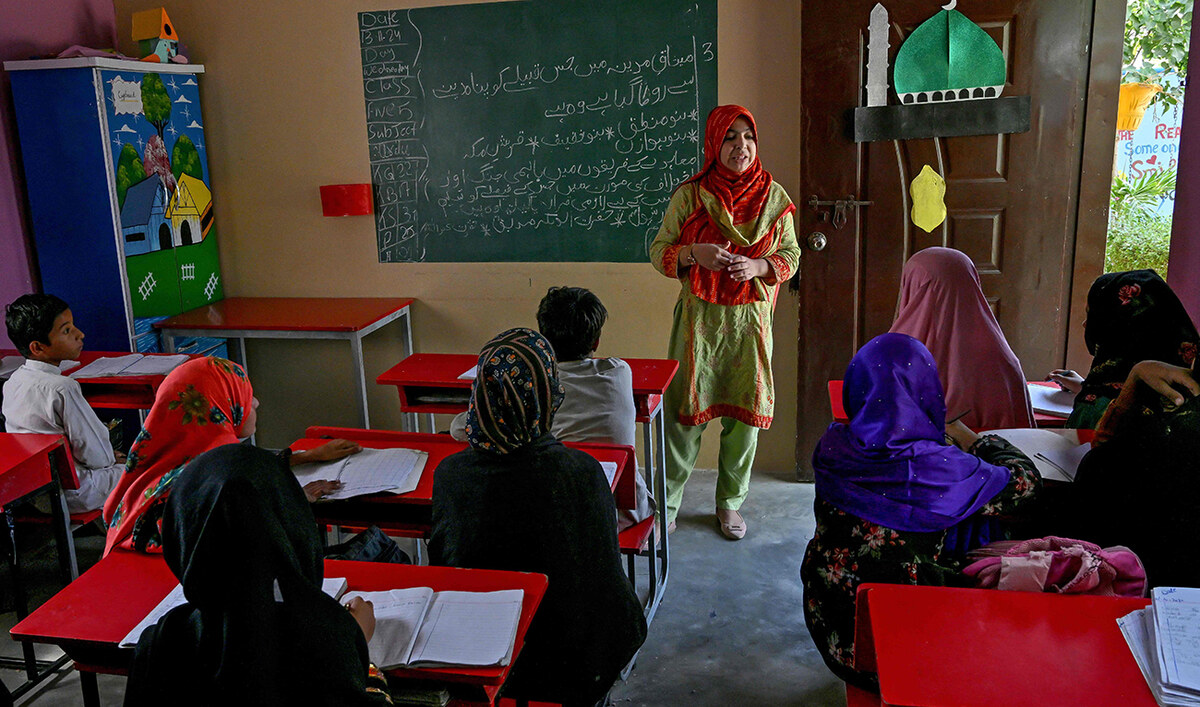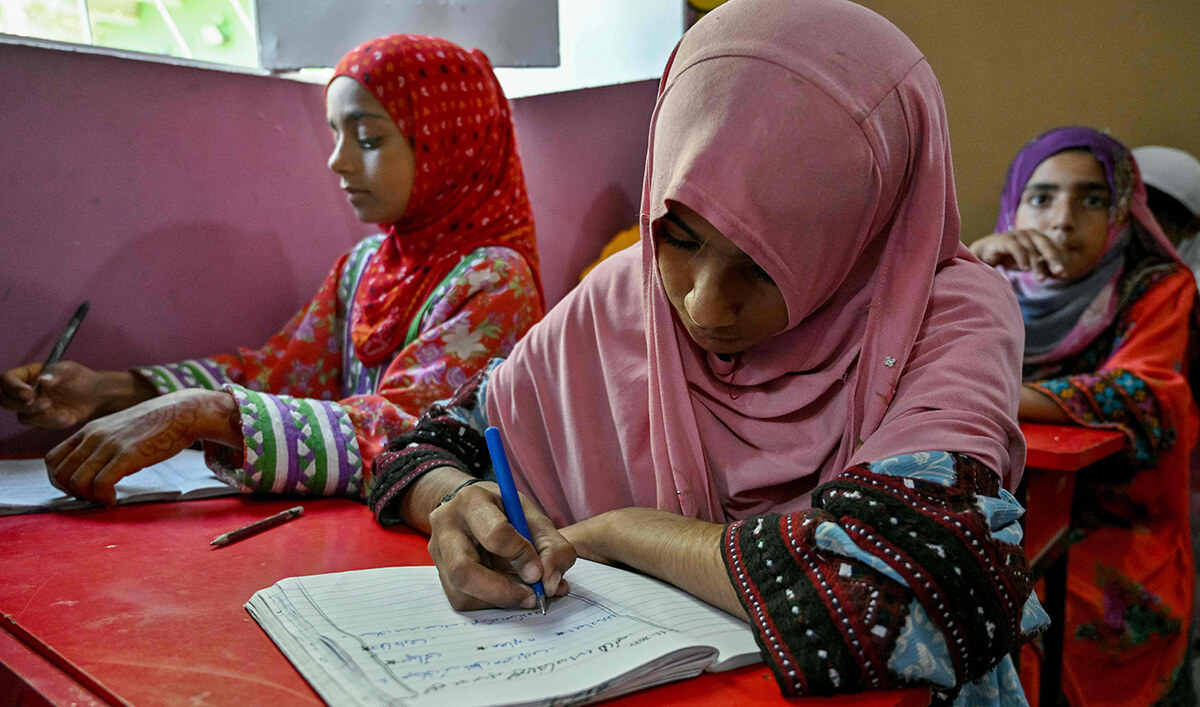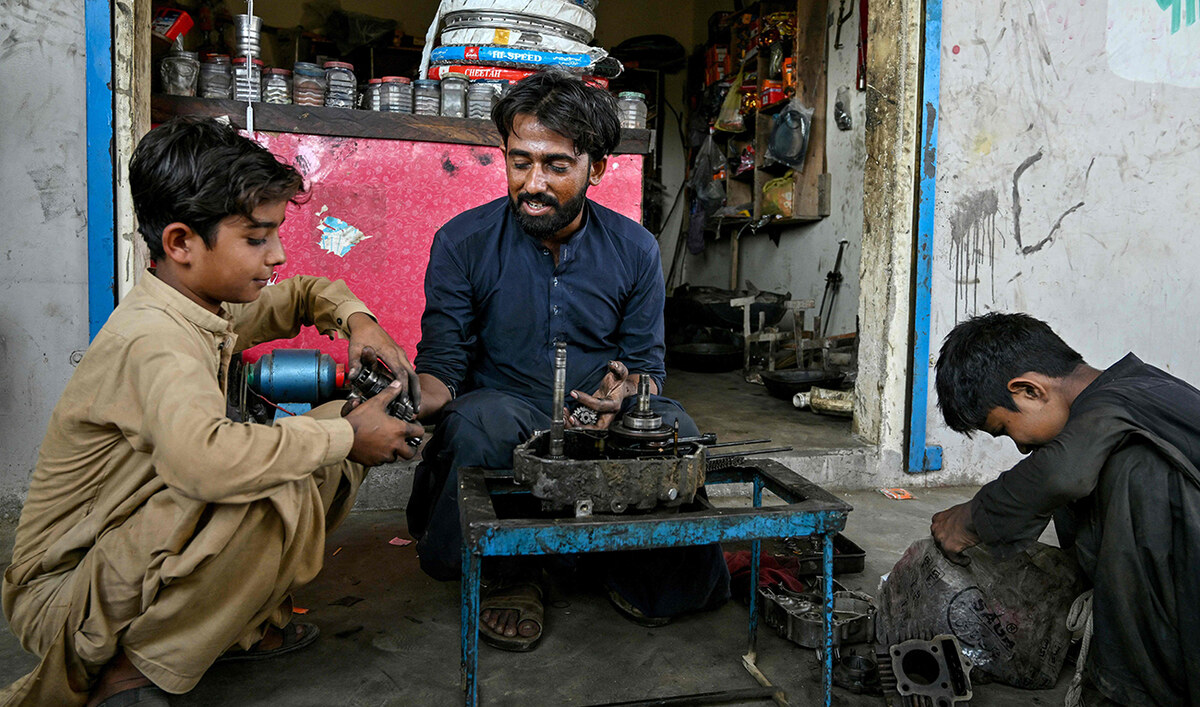JEDDAH: Camel owners in Saudi Arabia have been fined for performing cosmetic surgery on their animals to make them look more beautiful.
The owners were punished after subjecting the camels to improper lip augmentation and “injecting them with harmful substances to change their form,” the Saudi Press Agency.
The Ministry of Environment, Water and Agriculture issued fines to five people from across the Kingdom amounting to SR67,000 ($18,000) for violating animal welfare laws.
The ministry’s Director General of the Department of Health and Veterinary Control, Dr. Ali Al-Duwairj, said the penalties also included fining a pet shop for displaying and selling sick animals in poor living conditions.
A fine was also issued to a truck driver who transports pets and birds for neglecting to take adequate measures to protect the animals.
In January, 12 camels were disqualified from the King Abdul Aziz Camel Festival after they were found to have been injected with botox.
Camel owners fined for performing cosmetic surgery on their animals
Camel owners fined for performing cosmetic surgery on their animals

Pakistan to open today two-day summit on girls’ education in Muslim countries

- The conference’s aim is to stress Islam’s message that both men, women have right to education
- Over 150 dignitaries from 44 Muslim and other friendly states are taking part in the conference
ISLAMABAD: Pakistan will open today, Saturday, a two-day summit on girls’ education in Muslim communities, with over 150 dignitaries from 44 Muslim and other friendly states taking part in the conference.
The global summit, hosted by the Pakistani education ministry, aims to address the challenges and opportunities in advancing girls’ education across Muslim communities worldwide, according to Pakistan’s foreign office.
Prime Minister Shehbaz Sharif will inaugurate the conference and deliver a keynote address at the opening session. He will reaffirm the nation’s commitment to promoting girls’ education and gender equality.
Education Minister Khalid Maqbool Siddiqui this week said the primary aim of the conference is to stress the implementation of the Islamic message, which clearly states that both men and women have the right to education.
“By promoting girls’ education, we can build better homes, a better society and a stronger nation,” he said at a media briefing, adding that an “Islamabad Declaration” will be announced at the end of the summit that would outline decisive steps to transform girls’ education in Islamic countries.
Several dignitaries, including Organization of Islamic Cooperation (OIC) Secretary-General Hissein Brahim Taha and Egyptian Grand Mufti Dr. Nazir Mohamed Ayad, have arrived in Pakistan to attend the summit.
Pakistan has also extended an invitation to Afghanistan to join representatives from other Islamic countries and attend the conference in Islamabad.
“We have extended an invitation to Afghanistan to participate in this conference and hope that their delegation will attend as it is a very important neighboring country,” Siddiqui said.
Since the Taliban’s return to power in 2021, at least 1.4 million Afghan girls have been denied access to secondary education, according to a report by the United Nations International Children’s Emergency Fund (UNICEF) released in August last year.
Siddiqui said everyone respects tribal customs and cultures, but all such practices must align with Islamic values in Muslim countries, adding that nothing holds precedence over them.
“In Islam, there is no justification for restricting women’s education,” he added.
‘Education apartheid’: schooling in crisis in Pakistan

- Pakistan is facing severe education crisis, with over 26 million children out of school, the majority in rural areas
- Poverty is the biggest factor keeping children out of classrooms, but the problem is worsened by other factors too
ABDULLAH GOTH: Aneesa Haroon drops off her tattered school bag at her rural home in Pakistan and hurriedly grabs lunch before joining her father in the fields to pick vegetables.
The 11-year-old’s entry into school at the age of seven was a negotiation between teachers and her parents in her farming village on the outskirts of Karachi.
“Initially, many parents were not in favor of educating their children,” headteacher Rukhsar Amna told AFP.
“Some children were working in the fields, and their income was considered more valuable than education.”
Pakistan is facing a severe education crisis, with more than 26 million children out of school, the majority in rural areas, according to official government figures — one of the highest rates in the world.
This weekend, Pakistan will host a two-day international summit to advocate for girls’ education in Muslim countries, attended by Nobel Peace laureate and education activist Malala Yousafzai.
In Pakistan, poverty is the biggest factor keeping children out of classrooms, but the problem is worsened by inadequate infrastructure and underqualified teachers, cultural barriers and the impacts of climate change-fueled extreme weather.
In the village of Abdullah Goth on the outskirts of Karachi, the non-profit Roshan Pakistan Foundation school is the first in decades to cater to the population of over 2,500 people.
“There was no school here for generations. This is the first time parents, the community and children have realized the importance of a school,” said Humaira Bachal, a 36-year-old education advocate from the public and privately funded foundation.

Still, the presence of a school was just the first hurdle, she added.
Families only agreed to send their children in exchange for food rations, to compensate for the loss of household income that the children contributed.
In Abdullah Goth, most children attend school in the morning, leaving them free to work in the afternoon.
“Their regular support is essential for us,” said Aneesa’s father, Haroon Baloch, as he watched his daughter and niece pick okra to sell at the market.
“People in our village keep goats, and the children help graze them while we are at work. After finishing grazing, they also assist us with labor tasks.”

Education in Pakistan is also increasingly impacted by climate change.
Frequent school closures are announced due to heavy smog, heatwaves and floods, and government schools are rarely equipped with heating or fans.
In the restive provinces of Balochistan and Khyber Pakhtunkhwa, education faces significant setbacks due to ongoing militancy, while classes are routinely disrupted in the capital Islamabad due to political chaos.
Although the percentage of out-of-school children aged between five and 16 dropped from 44 percent in 2016 to 36 percent in 2023, according to census data, the absolute number rises each year as the population grows.
Girls all across the country are less likely to go to school, but in the poorest province of Balochistan, half of girls are out of school, according to the Pak Alliance for Maths and Science, which analyzed government data.
Cash-strapped Pakistan’s Prime Minister Shehbaz Sharif declared an “education emergency” last year, and said he would increase the education budget from 1.7 percent of GDP to 4 percent over the next five years.
Public schools funded by the government offer free education but struggle with limited resources and overcrowding, creating a huge market for private schools whose costs can start from a few dollars a month.
In a parallel system, thousands of madrassas provide Islamic education to children from the poorest families, as well as free meals and housing, but often fail to prepare students for the modern world.

“In a way, we are experiencing an education apartheid,” said Adil Najam, an international relations professor at Boston University who has researched Pakistan’s education system.
“We have at least 10 different systems, and you can buy whatever quality of education you want, from absolutely abysmal to absolutely world-class.
“The private non-profit schools can prime the pump by putting (out) a good idea, but we are a country of a quarter billion, so these schools can’t change the system.”
Even young student Aneesa, who has set her mind on becoming a doctor after health professionals visited her school, recognizes the divide with city kids.
“They don’t work in field labor like we do.”

In the small market of Abdullah Goth, dozens of children can be seen ducking in and out of street-side cafes serving truck drivers or stacking fruit in market stalls.
Ten-year-old Kamran Imran supports his father in raising his three younger siblings by working at a motorcycle workshop in the afternoons, earning 250 rupees ($0.90) a day.
Muhammad Hanif, the 24-year-old owner of the workshop, does not support the idea of education and has not sent his own children to school.
“What’s the point of studying if after 10 to 12 years, we still end up struggling for basic needs, wasting time and finding no way out?” he told AFP.
Najam, the professor, said that low-quality education was contributing to the rise in out-of-school children.
Parents, realizing their children cannot compete for jobs with those who attended better schools, instead prefer to teach them labor skills.
“As big a crisis as children being out of school is the quality of the education in schools,” said Najam.
Wild ghee production: Tradition of the Northern Borders region

- Wild ghee production peaks during the winter months due to high local demand
- Northern women showcase their ghee and other handicrafts at various festivals and national events
ARAR: In the Northern Borders region, women have long excelled in producing wild ghee, a staple deeply rooted in the local culture and closely tied to the region’s abundant livestock, estimated by the Ministry of Environment, Water and Agriculture to exceed 7 million cattle and camels.
Wild ghee production peaks during the winter months due to high local demand and is a key ingredient in many popular dishes, including porridge and festive meals.

Umm Nada, a local ghee producer, describes the multi-stage process: starting with milking, the milk is heated, boiled, slightly cooled, and mixed with a starter culture to transform it into “Khathir,” a traditional dairy product of naturally fermented or curdled milk similar to yogurt or kefir.
The mixture is then churned for over half an hour in a goatskin or sheepskin container called a “Samil.” After several days of mixing, the butter is melted over fire, turning into wild ghee, which is then stored in leather containers known as “Al-Nahw” or “Al-Dharf.”
Northern women showcase their ghee and other handicrafts at various festivals and national events, with the Arar market and the Lavender Hall, which provides training and development for local producers, serving as key venues for these traditional crafts.

Rights network criticizes flood compensation and rehabilitation efforts in Sindh

- Network’s fact-finding team says not much consultation was done while designing houses for flood-hit families
- It says these one-room ‘flood-resilient’ structures lack basic amenities like toilets, can’t withstand heavy rain
KARACHI: A fact-finding mission conducted by a network of rights activists in South Asia on Friday criticized Pakistan’s response to the devastating 2022 floods, highlighting significant shortcomings in housing, sanitation and health care for flood-affected communities in Sindh.
The 2022 floods, triggered by unprecedented monsoon rains and glacial melt, displaced millions, killed over 1,700 people and caused damages exceeding $35 billion, leaving vast areas submerged for months.
The fact-finding team of South Asians for Human Rights (SAHR) visited Sindh, surveying several districts, including Larkana, Shikarpur, Nawabshah and Hyderabad, from January 6-10 to assess the government’s compensation and rehabilitation efforts.
“The preliminary findings contradict the provincial government’s claims of launching one of the world’s largest housing projects for flood affectees,” said Ahmad Rafay Alam, an environmental lawyer and SAHR Bureau Member, during a press conference in Karachi.
The mission raised serious concerns over the proposed one-room “flood-resilient” housing model, calling it insufficient and lacking essential amenities such as kitchens and toilets.
“With skyrocketed inflation, the Rs300,000 ($1,077) compensation per house is unreasonably low,” SAHR said in a statement.
It maintained there was not much consultation while designing the houses, questioning their climate resilience and warning they were unlikely to survive future disasters.
“More severe natural calamities will impact this vulnerable population, and it is highly unlikely that these structures can withstand another heavy rain,” it noted.
In Dhand, a village near Mohenjo Daro, SAHR found that only four out of 40 destroyed houses had been rebuilt.
“Some families still live in tents or neighbors’ homes, and with average family sizes of six people, it is impossible to live in these single rooms, especially when some family members are married,” it said.
The regional rights network urged the government to conduct fresh surveys to ensure no genuinely affected individuals were left out. It informed that many residents had reported difficulty in finding their names on government beneficiary lists, delaying relief.
SAHR also highlighted poor sanitation and health care in affected areas, reporting that villages lacked drainage systems, leading to outbreaks of diarrhea, malaria and skin infections.
Arab News reached out to provincial officials, including Sindh’s Information Minister Sharjeel Memon and Chief Minister Murad Ali Shah’s spokesperson Rasheed Channa, but received no response.
Sadia Javed, another government spokesperson, said she would review the mission’s findings but had not responded by the time of filing this report.
Text messaging scammers stole $2m in cryptocurrency from victims, says NY lawsuit

- Scammers used unsolicited text messages to target people looking for remote work
- Victims were told to review products online in order to help generate “market data”
NEW YORK: Scammers stole millions of dollars in cryptocurrency from people seeking remote work opportunities as part of an elaborate scheme, according to New York’s attorney general.
Attorney General Letitia James said Thursday that she’s filed a lawsuit in order to recover more than $2 million that she said was stolen from New Yorkers and others around the country.
James said the unknown network of scammers used unsolicited text messages to target people looking for remote work.
They told victims that the job involved reviewing products online in order to help generate “market data,” James’ office said. But in order to begin earning money, victims were told they had to open cryptocurrency accounts and had to maintain a balance equal to, or greater than, the price of the products they were reviewing.
The victims were assured they would get their investments back plus commission, but the funds simply went into the scammers’ crypto wallets, James’ office said. The product reviews were also conducted on a website set up as part of the scheme.
The suit cites seven victims, identified by pseudonyms, residing in New York, Virginia and Florida. One New York victim lost over $100,000, according to the suit. A Florida woman lost over $300,000.
“Deceiving New Yorkers looking to take on remote work and earn money to support their families is cruel and unacceptable,” she said in a statement. “Scammers sent text messages to New Yorkers promising them good-paying, flexible jobs only to trick them into purchasing cryptocurrency and then stealing it from them.”
James’ suit seeks to return the stolen funds.
Queens District Attorney Melinda Katz said her office’s cryptocurrency unit traced over $2 million in stolen crypto and identified the digital wallets where the coins were being held. Then, working with James’ office, they were able to have the currency frozen until they could be returned to victims.
“Work scams that prey on those seeking legitimate employment not only rob victims of their hard-earned money but also shatter their trust in the job market,” she added.



















